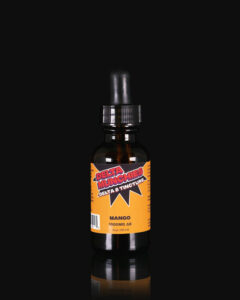As pet owners, we constantly strive to provide our beloved four-legged companions with the best care possible. CBD (cannabidiol), a natural compound derived from the cannabis plant, has gained significant attention for its potential therapeutic benefits in both humans and animals. One of the key reasons why CBD can be beneficial for pets is its interaction with the endocannabinoid system (ECS). This comprehensive guide aims to explore the potential of CBD for pets by focusing on how it supports the endocannabinoid system, the benefits it may offer, dosage considerations, safety guidelines, and important factors to consider before incorporating CBD into your pet’s routine.
Understanding the Endocannabinoid System (ECS)
The endocannabinoid system (ECS) is a complex biological system present in all mammals, including humans and animals. It is composed of three main components: endocannabinoids, receptors, and enzymes. The ECS plays a crucial role in maintaining balance and regulating various physiological processes such as mood, appetite, pain sensation, immune response, and sleep. The ECS helps the body achieve homeostasis, a state of equilibrium, by responding to internal and external changes.
CBD and the Endocannabinoid System (ECS) in Pets
CBD interacts with the ECS in pets in a similar way to how it interacts with the ECS in humans. It can influence the activity of ECS receptors, primarily CB1 and CB2 receptors, located throughout the body. By interacting with these receptors, CBD may help support the optimal functioning of the ECS and promote balance within the body.
Benefits of CBD for Pets
Pain Management
CBD may offer relief from pain and discomfort associated with conditions such as arthritis, inflammation, injuries, or post-operative recovery. By interacting with ECS receptors involved in pain modulation, CBD can potentially reduce pain signals and provide comfort for your pet.
Anxiety and Stress Reduction
Pets can experience anxiety and stress in various situations, such as separation anxiety, noise phobia, or travel anxiety. CBD may help reduce anxiety-related behaviors and promote relaxation in pets. By interacting with ECS receptors in the brain responsible for mood regulation, CBD can have a calming effect and provide relief during stressful events.
Anti-Inflammatory Effects
Chronic inflammation can contribute to various health conditions in pets, including arthritis, allergies, and gastrointestinal disorders. CBD’s anti-inflammatory properties may help reduce inflammation in the body, potentially alleviating symptoms and improving overall well-being.
Seizure Management
CBD has gained attention for its potential anticonvulsant effects in pets with epilepsy or other seizure disorders. It may help reduce the frequency and severity of seizures, although more research is needed to fully understand its mechanisms of action.
Appetite Stimulation
Loss of appetite can be a concern for pets, leading to weight loss, nutrient deficiencies, and a decline in overall health. CBD may help stimulate appetite in pets by interacting with ECS receptors involved in hunger and digestion. By promoting a healthy appetite, CBD can support proper nutrition and overall well-being.
Dosage Considerations for CBD in Pets
Determining the proper CBD dosage for your pet is essential to ensure their safety and well-being. Several factors should be taken into account, including your pet’s size, weight, age, health condition, and the concentration of CBD in the product you choose. It is recommended to start with a low dosage and gradually increase it as needed while closely monitoring your pet’s response. Consulting with a veterinarian experienced in CBD use for pets can provide valuable guidance on dosage and help tailor the CBD regimen to your pet’s specific needs.
Safety Guidelines for CBD Use in Pets
Choose High-Quality CBD Products
Opt for CBD products specifically formulated for pets from reputable manufacturers. Look for products that have undergone third-party testing to ensure their quality, purity, and absence of contaminants.
THC Content
Ensure that the CBD products you choose contain very low or no THC (tetrahydrocannabinol), the psychoactive compound found in cannabis. THC can be toxic to pets, and it is important to select CBD products that are safe and appropriate for your pet’s well-being.
Avoid Harmful Ingredients
Be mindful of the ingredients in CBD products, as certain additives or flavorings may be harmful to pets. Choose products that are free from potentially toxic substances and are specifically formulated with pet-safe ingredients.
Consult with a Veterinarian
Before incorporating CBD into your pet’s routine, consult with a veterinarian who is knowledgeable about CBD use in animals. They can evaluate your pet’s specific needs, provide guidance on dosage, potential interactions with medications, and offer personalized advice based on their expertise.
Important Considerations Before Using CBD for Your Pet
- Health Condition and Medications:It is crucial to consider your pet’s overall health condition and any medications they are currently taking. CBD may interact with certain medications, and it is important to consult with a veterinarian to ensure the safe use of CBD alongside other treatments.
- Start Slowly and Monitor:When introducing CBD to your pet’s routine, start with a low dosage and closely monitor their response. Observe any changes in behavior, appetite, energy levels, or adverse effects. Adjust the dosage as needed or consult with a veterinarian if you have any concerns.
- Legal Considerations:The legal status of CBD for pets may vary depending on your country or state. Research and comply with local regulations to ensure the legal and ethical use of CBD for your pet.
Conclusion
CBD offers a promising natural supplement to support the overall well-being of your pet by interacting with their endocannabinoid system. Understanding the benefits, dosage considerations, safety guidelines, and important factors to consider allows you to make informed decisions regarding CBD use for your pet. By incorporating CBD into your pet’s routine under the guidance of a veterinarian, you can provide them with potential benefits and take their care to the next level. Always prioritize the well-being of your furry companion and consult with professionals to ensure the best possible outcomes with CBD for your pet.
In today’s world, people’s eating and exercise patterns have changed, and it is often lifestyle that is the cause of many diet-related illnesses. I believe that each of us is unique – what works for one does not help another. What is more, it can even be harmful. I am interested in food psychology, which studies a person’s relationship with their body and food, explains our choices and desires for specific products, the difficulty of maintaining optimal body weight, as well as the influence of various internal and external factors on appetite.
- Where to buy CBD Oil in Ashfield, UK - August 12, 2023
- A Beginner’S Guide to CBD Gummies - August 12, 2023
- 12 Surprising Benefits and Uses of CBD Gummies - August 12, 2023












![Vista Edge [Avocado]](https://acushnetvapor.com/wp-content/uploads/2023/10/Vista-Edge-Avocado-300x300.webp)




